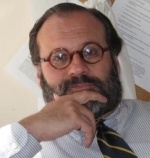 Earlier this month my wife and I were watching the news when Patrick Leahy came on to talk about something or other — I don’t remember what.
Earlier this month my wife and I were watching the news when Patrick Leahy came on to talk about something or other — I don’t remember what.
Leahy, 73, has been a Democratic senator from Vermont for nearly four decades. Normally that stirs up feelings that, you know, maybe it’s time for the old man to go back to the dairy farm and watch his grandchildren milk the cows.
But I had been reading Mark Leibovich’s “This Town.” And so I felt a tiny measure of admiration for Leahy stirring up inside me. He hadn’t cashed in. (His net worth — somewhere between $49,000 and $210,000 — makes him among the poorer members of the Senate, according to the Center for Responsive Politics.) He hasn’t become a lobbyist. He apparently intends to die with his boots on.
That amounts to honor of a sort in the vomitrocious Washington that Leibovich describes in revolting detail — a town of sellouts and suckups (“Suckup City” was one of his working titles), a place where the nation’s business isn’t just subordinate to the culture of money and access, but is, at best, an afterthought.
If you plan to review a book, you shouldn’t “read” the audio version. I have no notes, no dog-eared pages to refer to. So consider this not a review so much as a few disjointed impressions of “This Town,” subtitled “Two Parties and a Funeral — Plus, Plenty of Valet Parking! — in America’s Gilded Capital.”
Mark is an old acquaintance. He and I worked together for a couple of years at The Boston Phoenix in the early 1990s before he moved on to the San Jose Mercury News, The Washington Post and, finally, The New York Times. (Other former Phoenicians who’ve reviewed “This Town”: Peter Kadzis in The Providence Phoenix and Marjorie Arons-Barron for her blog.)
There are many good things I could say about Mark and “This Town,” but I’ll start with this: I have never known anyone who worked harder to improve. It was not unusual for me to leave the Phoenix in the evening while Mark was working on an article — and to come back the next morning to find him still at it. The result of all that labor is a finely honed sense of craft that most of us can only aspire to.
As virtually every reviewer has pointed out, “This Town” begins with a masterful description of the funeral service for “Meet the Press” impresario Tim Russert, an ostensibly mournful occasion that provided the media and political classes in Washington with an opportunity to carry out the real business of their community: talking about themselves and checking their place in the pecking order.
There are so many loathsome characters in “This Town” that you’d need an index to keep track of them all. And Leibovich puckishly refused to provide one, though The Washington Post published an unofficial index here. For my money, though, the lowest of the low are former senator Evan Bayh and former congressman Dick Gephardt — Democrats who left office but stayed in Washington to become highly paid lobbyists. Bayh, with his unctuously insincere laments over how broken Washington had become, and Gephardt, who quickly sold out every pro-labor position he had ever held, rise above (or descend below) a common streetwalker like Chris Dodd, who flirted not very convincingly with becoming an entrepreneur before entering the warm embrace of the film industry.
Also: If you have never heard of Tammy Haddad, Leibovich will remove your innocence. You will be sadder but wiser.
Because Mark is such a fine writer, he operates with a scalpel; those of us who have only a baseball bat to work with can only stand back in awe at the way he carves up his subjects. Still, I found myself occasionally wishing he’d grab his bat and do to some of these scum-sucking leeches what David Ortiz did to that dugout phone in Baltimore.
Mike Allen of Politico, for instance, comes off as an oddly sympathetic character despite the damage he and his news organization have done to democracy with their focus on politics as a sport and their elevation of trivia and gossip. (To be sure, Leibovich describes that damage in great detail.) I could be wrong, but it seems to me that that Mark was tougher on Allen in a profile for the Times Magazine a few years ago.
Thus I was immensely pleased to hear Mark (or, rather, narrator Joe Barrett) administer an old-fashioned thrashing to Sidney Blumenthal. It seems that Blumenthal, yet another former Phoenix reporter, had lodged a bogus plagiarism complaint against Mark because Blumenthal had written a play several decades ago called “This Town,” which, inconveniently for Sid Vicious, no one had ever heard of. More, please.
I also found myself wondering what Leibovich makes of the Tea Party and the Republican Party’s ever-rightward drift into crazyland. The Washington of “This Town” is rather familiar, if rarely so-well described. The corruption is all-pervasive and bipartisan, defined by the unlikely (but not really) partnership of the despicable Republican operative Haley Barbour and the equally despicable Democratic fundraiser Terry McAuliffe.
No doubt such relationships remain an important part of Washington. But it seems to me that people like Rand Paul, Ted Cruz and their ilk — for instance, the crazies now talking about impeaching President Obama — don’t really fit into that world. And, increasingly, they’re calling the shots, making the sort of Old Guard Republicans Leibovich writes about (Republicans like John Boehner and Mitch McConnell, for instance) all but irrelevant.
But that’s a quibble, and it would have shifted Mark away from what he does best: writing finely honed character studies of people who have very little character. “This Town” is an excellent book that says much about why we hate Washington — and why we’re right to keep on doing so. Hold the uplift. And make sure the shower you’ll need after reading it is extra hot.






